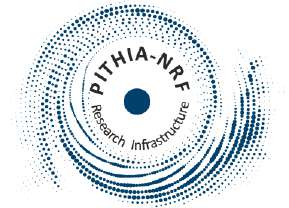Seminar by Anwesha Maharana (KU Leuven)
Title: Space weather forecasting with advanced flux rope CME models in EUHFORIA
Abstract:
Coronal mass ejections (CMEs) from the Sun are one of the major drivers of space weather as they can cause geomagnetic storms impacting space and ground-based technologies, and in turn life on Earth. With EUropean Heliosphere FORecasting Information Asset (EUHFORIA), we can perform MHD modelling of the solar wind and the evolution of the CMEs in the heliosphere. Observations of the initiation and early propagation of the CMEs are used to obtain the geometrical and magnetic field parameters for CMEs initialization in EUHFORIA. 3D geometrical reconstruction methodology is applied using observations from multiple vantage points to constrain geometrical parameters. Magnetic field parameters are obtained from proxies like flare ribbons, coronal dimmings, and post eruptive arcades. Although we can constrain the CME orientation based on the polarity inversion line, the CME undergoes considerable rotation and deflection in the low corona itself where we do not have observations. In cases when we do not have source region observations in low corona, CME 3D reconstruction techniques can provide a tilt/geometrical inclination but not the axial field direction. Moreover, with STEREO-B coming close to Earth, we are losing the setup of multiple vantage points for 3D reconstruction. In the absence of observations/higher errors on the parameters constrained for simulations, we rather need to perform ensemble modelling to consider multiple alternatives for forecasting. This would be possible only if we had a model with global geometry (CME legs) consuming less computational time for real-time forecasting. Flux rope CME models such as the spheromak model (spherical geometry) and the FRi3D model (global geometry) are already functional in EUHFORIA. We will discuss the drawbacks of the existing models and motivate the development of the novel torus CME model to improve the computational time while having a global geometry.
Where: The seminar can be followed in person in building 200B, room 01.16 or online at the following link:
https://eu.bbcollab.com/guest/6fc7259fc2ba4f29af721ccb6a19eefd





